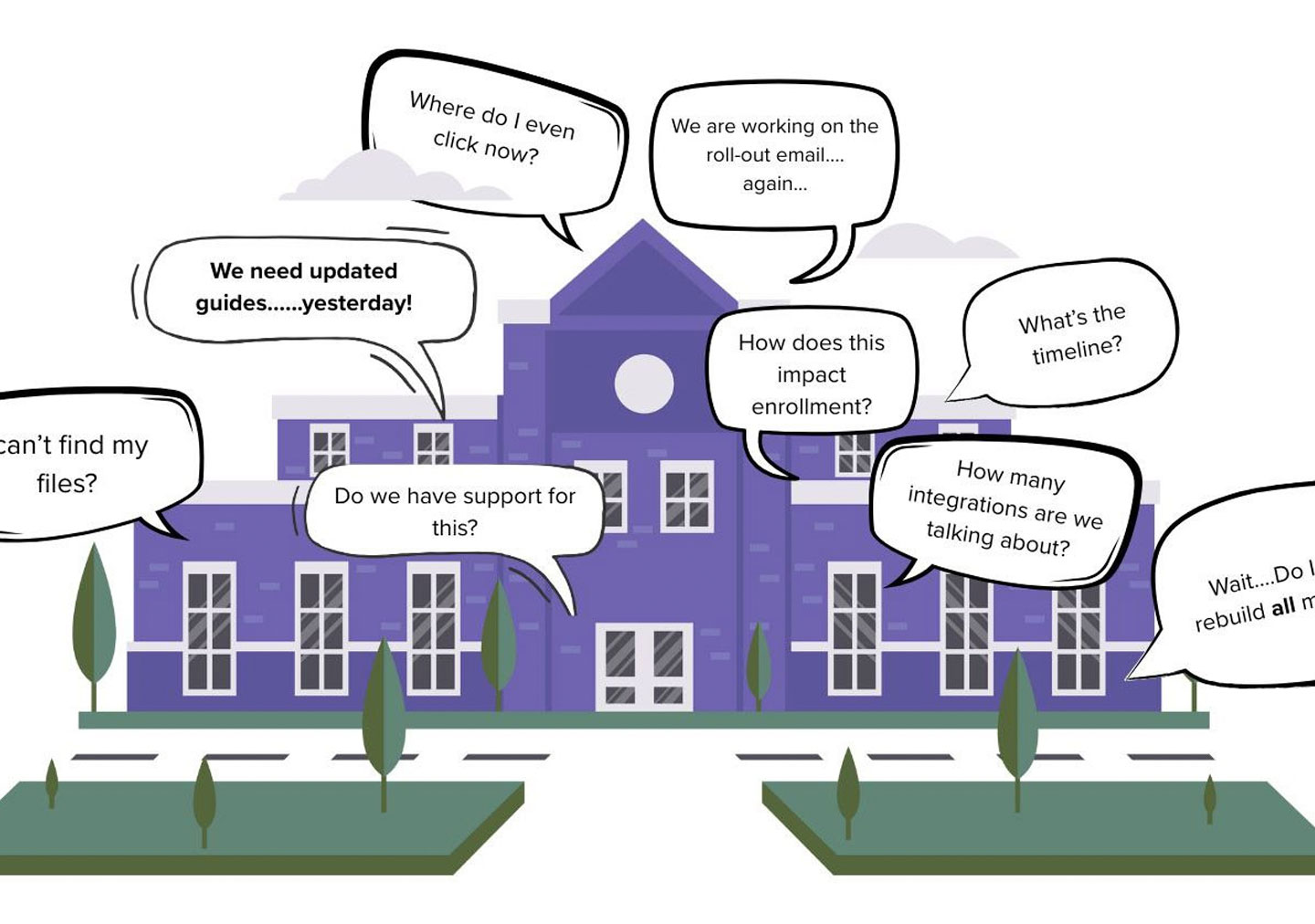AI adoption is surging across industries, and higher education is no exception. According to Ellucian's 2024 AI in Higher Education report, institutions are increasingly using AI tools for both personal and professional purposes. Colleges and universities are increasingly embedding artificial intelligence (AI) across institutional operations — from chatbots that enhance student support services to predictive analytics optimizing enrollment management strategies. In many cases, AI is already integrated within existing enterprise systems, often without full institutional awareness of its active deployment.
Despite this growing momentum, many institutions are still proceeding with caution. Leaders may be unsure how to introduce AI to stakeholders who have not yet explored these tools, or how to scale an AI-powered feature already waiting in the wings. Determining whether an institution is truly "AI-ready" is no small feat.
AI implementation doesn't start with a tool; it begins with a new mindset and trust. Trust begins with data governance.
Why Data Governance Matters
Data governance is the process of managing the availability, usability, integrity, and security of data. It establishes the rules, roles, and responsibilities that ensure data is trustworthy, consistent, and used ethically.
Just like students learn from textbooks and lectures, AI learns from institutional data, so data needs to be clean, accurate, and representative. AI can deliver valuable insights, automate administrative tasks, and personalize student support, but if the data is incomplete, biased, or poorly managed, AI can reinforce inequities, make faulty predictions, or expose sensitive information.
This is not just a technical concern, it is a strategic one. Data governance transcends IT policy; it becomes the pillar of trust, transparency, and ethical AI management. Before any institution can confidently leverage the advantages of AI, it must first establish a robust, shared framework for how its data is governed.
Common Data Challenges in Higher Ed
Persistent data challenges in higher ed include siloed systems, inconsistent definitions, and conflicting reports. AI systems, by design, pull from a wide range of data sources across an institution. If those sources are ungoverned, duplicative, or contain outdated or sensitive information, AI can amplify existing issues.
Effective data governance ensures that AI tools only access approved data, follow privacy protocols, and produce outcomes that align with institutional values. Without effective governance, institutions risk data breaches, compliance violations (e.g., FERPA, Personally Identifying Information, HIPAA), and harmful or misleading outputs.
AI-Ready Data Governance Checklist
If data governance once felt like a back-office IT concern, AI has made it an institutional priority. Institutions can take the following steps to make sure their data is a strong and stable foundation for AI.
- Revisit privacy and security policies to account for new AI use cases.
- Clarify roles and responsibilities for data ownership, stewardship, and access for all data domains.
- Audit, clean, and validate critical data regularly.
- Establish a cross-functional data governance committee, with academic, IT, and student services representation, to guide policy development and support data management practices.
From Barrier to Bridge, Data Governance Connects AI to Institutional Strategy
With the right data foundation, institutions can confidently leverage AI to improve outcomes, streamline operations, and better serve students.
If your institution is beginning its AI journey — or looking to ensure it is on solid footing — now is the time to strengthen your data governance practices. Ellucian offers services to help evaluate your governance structure, define data roles, establish shared definitions, and support collaboration across departments. Contact us at [email protected] to discuss your institution's data governance needs. AI is only as smart — and as trustworthy — as the data from which it learns. Let us make sure it learns from the best.





